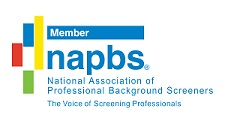Secrets you can keep from your employer
by Liz Pulliam Weston
I always pictured the background checks that employers conduct as serious and scary affairs.
That impression came from my first brush with background screening, when two ramrod-straight, uniformed military officers knocked at my door almost 20 years ago to check up on a friend who'd applied for special security clearances.
They asked about everything from drug and alcohol use to dating habits to finances. My efforts to cast my friend in the best possible light were met with tough and penetrating follow-up questions. By the end, I was babbling as if they had stuck bamboo shoots under my nails.
Digging for dirt
So when my editor suggested we run a background check on him to determine how much your employer can find out about you, I leaped at the chance.
Surely we could uncover at least some dirt that would make for a juicy story -- or that, kept tucked away, could give me some leverage in our next salary negotiation.
Alas, it was not to be.
The employment check we requested, and subsequent interviews with human-resources experts, surprised me in several ways -- both at the depth and breadth of information that can be turned up, and at how many gaps in the employment screening process there are.
The one youthful indiscretion my editor confessed to -- a July 4th peccadillo at age 19 that led to a night in jail and a misdemeanor conviction -- never appeared in the reports prepared by Los Angeles-based US Search, the company we asked to run the background check.
Lies and more damned lies
I did find out how much he owes on his mortgage, the recent balances on his credit cards and who his neighbors were seven years ago. For this exercise, he deliberately fudged about a college degree -- he said it was in journalism, a degree his alma mater doesn't offer -- and the screeners caught that. He also lied about his salary, twice, and they didn't catch that.
The three most important lessons from all this:
• Don't lie about where you've worked or when. Nine out of 10 large companies now conduct background checks on all potential new hires, human resources experts say, and the process of verifying employment is so routine that many companies have automated the process.
• Don't lie about where you went to school or what degree you earned. Despite the recent rash of revelations about resume padding -- from California's poet laureate to Notre Dame's football coach to Veritas Software's CFO -- degree-fudging is remarkably easy to detect.
• Beyond that, don't assume your past is an open book. Now, I would never advocate lying to a potential employer. But you don't necessarily have to confess all in fear that the company will discover everything about you anyway.
First of all, you should know that an employer or potential employer can't run a background check on you at whim.
Before investigating your past, the company has to tell you in writing what it's doing and obtain your permission. The company is also required to notify you if you're being denied a position, promotion or continued employment because of information it uncovered, and give you a chance to challenge what the company found.
They can't unearth all your dark secrets
In addition, employers' ability to use information from a background check to discriminate against you is often surprisingly limited.
For example:
Your credit: Your potential employer can find out how much you owe on your mortgage, your car and your credit cards as well as how often you've been late on your bills. Unless you're in a position to rob the company blind, however, your lousy credit usually isn't a reason to blackball you from a job.
"The person has to be in a position of trust -- handling cash, for example," explained Karol Pollock, US Search's general counsel. "What you're looking for is someone in such dire financial straits that they'd be tempted to steal."
In addition, employers and potential employers are specifically forbidden by law from using the fact you filed for bankruptcy as a reason to fire, not hire or fail to promote you.
That might not make you feel any better about your employer's snooping, especially if the details of your financial life aren't relevant to your job. But at least you shouldn't have to worry about that late payment to MasterCard three years ago screwing up your chance for a promotion.
Your employment history: Many companies, fearful of getting sued, refuse to comment on former employees beyond confirming their dates of employment and their titles. That means you don't want to pretend you've worked somewhere you haven't, but you may not need to worry about a nasty ex-boss trashing your career.
Whether you can exaggerate your salary is another matter. US Search said its investigators usually confirm an applicant's reported salary with someone who should know, like a supervisor. In my editor's case, one employer refused to discuss salary information and his current boss confirmed an incorrect figure.
He was also given a glowing review by a former boss -- but US Search confessed it took my editor's word that the reference was who he said he was, and not a friend pretending to be a past supervisor.
Otherwise, the search firm would have to do a background check on the reference -- a process that would have required the reference's permission.
"Without his consent to do a background check," said Bernard May, US Search's vice president of product marketing, "we're limited in what we can do."
Your record: If you've had a brush with the law, especially recently, chances are good your employer can find out about it, since court records are increasingly computerized and available in various databases.
Whether the information can be used against you is another matter. Laws vary from state to state, but often it takes a felony conviction to justify not hiring you.
"If it's totally unrelated to the job and the person's performance in the job," Pollock said, the employer would have an uphill battle defending itself in a lawsuit if it used a conviction to justify denying a job.
Of course, there's nothing to stop an employer concerned about a past arrest to find some other plausible reason for not hiring you
And violent crimes are another matter. Employers are understandably concerned about being sued over workplace violence, and human resources experts say more companies are doing criminal history checks to weed out applicants who could cause trouble.
Check up on yourself
If your legal problems are further in the past, you may have less to worry about, since some states don't allow background screeners to reveal convictions after a certain period. In California, for example, the statute of limitations is seven years after a sentence is served -- which is how my editor's night in the slammer 27 years ago escaped scrutiny.
"We probably found it, but we didn't report it to you because of California law," May said. "He's done his time, so that shouldn't be held against him."
How can you know for sure what will turn up in a background check? The best course might be to simply hire a screening firm to conduct its own checkup on you. The cost is usually nominal -- $20 to $50, depending on what kind of records you want checked and in how many states -- and you can find firms in the Yellow Pages under "Investigations" or by typing "employment background checks" into any Internet search engine.










